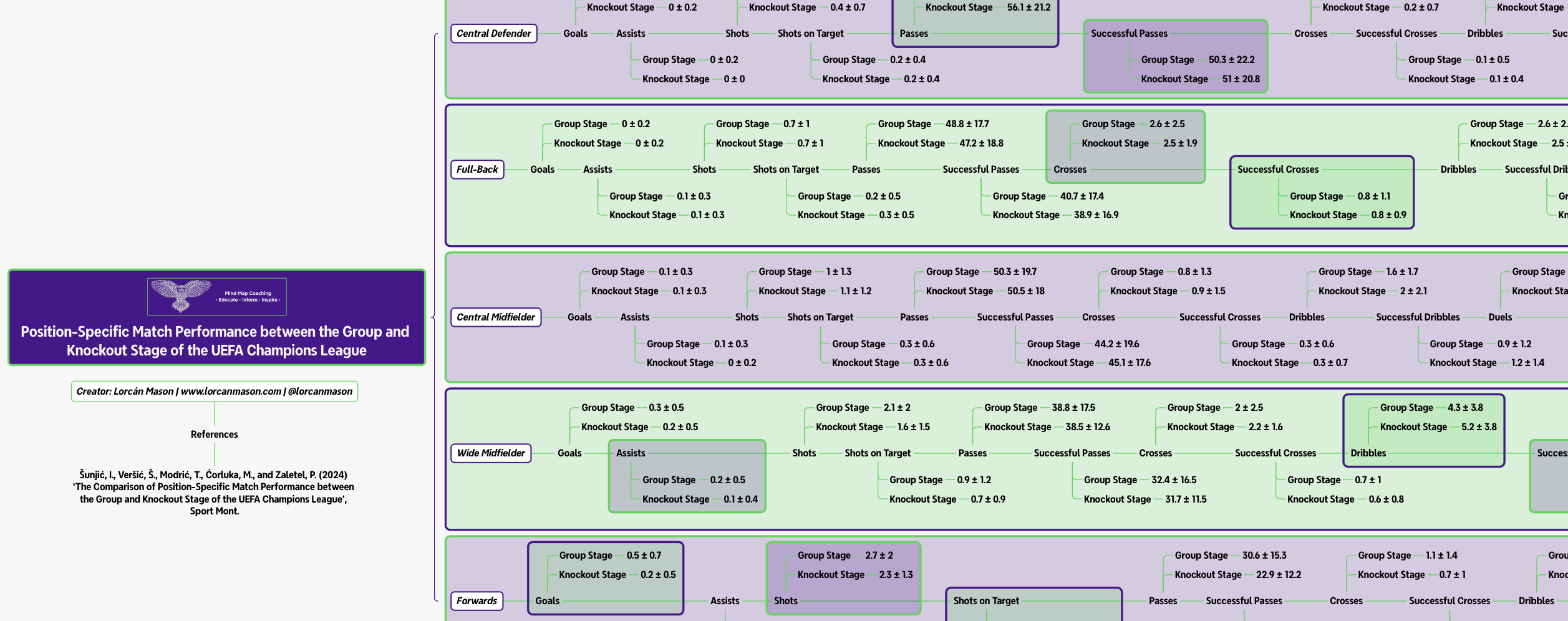The Comparison of Position-Specific Match Performance between the Group and Knockout Stage of the UEFA Champions League
Several components contribute to successful performance in matches, where technical, tactical, and physical aspects play a crucial role. Analysing performance can offer a competitive advantage against opponents and assist in making key decisions regarding one's own team.

Several components contribute to successful performance in matches, where technical, tactical, and physical aspects play a crucial role (Andrzejewski et al., 2022). The systematic analysis of match performance is highly significant as it can serve as a valuable instrument (Goes et al., 2021). More specifically, analysing performance can offer a competitive advantage against opponents and assist in making key decisions regarding one's own team (Sarmento et al., 2014). Research has shown that various factors like playing position (Modric, Versic, & Sekulic, 2021), match result (Chmura et al., 2018), venue (Diana et al., 2017), team setup (Aquino et al., 2020), and opponent strength (Almeida, Ferreira, & Volossovitch, 2014) could impact match performance.
The UEFA Champions League (UCL) stands out as the most prestigious and elite club football competition (Schokkaert & Swinnen, 2014). During the UCL group stage, thirty-two clubs are distributed into eight groups and play six matches. Teams receive three points for a win, one point for a draw, and zero points for a loss. The top two teams in each group advance to the knockout stage, where sixteen teams engage in head-to-head elimination matches. Each tie consists of two games, and the team with the higher goal tally progresses.
This study indicates that the technical performance of UCL players remains consistent regardless of the stage of the competition. Given that the UCL showcases the finest footballers globally, whose technical abilities are undoubtedly exceptional (Modric et al., 2023), these findings imply that the technical skills of UCL players reach peak levels both in group and knockout phases. Thus, even participating in the UCL group stage necessitates having technically proficient players. This insight could greatly assist football coaches in selecting players for specific matches throughout the competitive season.

